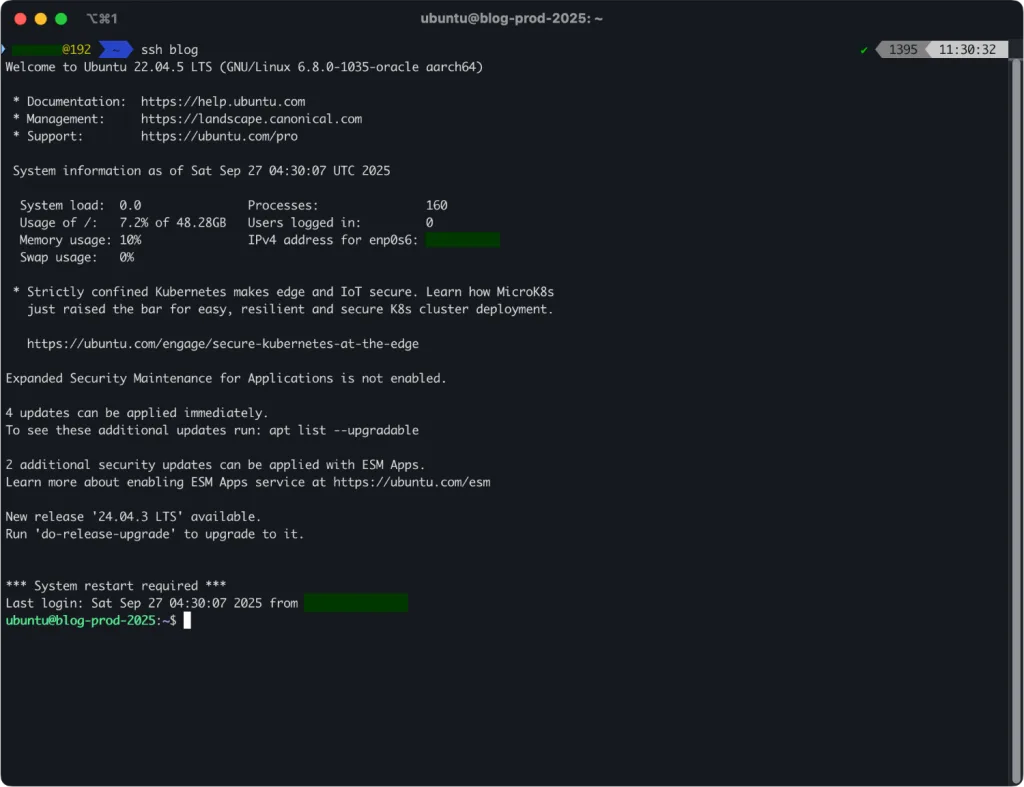Connecting to a server via SSH (Secure Shell) is essential for managing remote Linux servers. SSH allows you to securely log in, execute commands, and transfer files. This guide will walk you through connecting to a server on macOS, Linux, and Windows using SSH keys and aliases.
What you need before connecting
- Server IP address – e.g.,
203.10.109.25. - Username on the server – often
ubuntu,root, or a user you created. - SSH credentials – either a password or a private key file (like
.pem,.ppk, or.key). - SSH client – you can use Terminal (macOS / Linux), or PowerShell (Windows).
Preparing the Private Keys
Usually, you’ll obtain a private key when creating a new Instance (server) on platforms like AWS or OCI. You need this key to connect to a server via SSH.
For the simplicity, instead of using a long command like this:
ssh -i ~/.ssh/blog.key [email protected]Code language: Bash (bash)I’ll show you how to just use this to connect via SSH:
ssh blogThis is called aliases. To make aliases:
On macOS / Linux:
Open Terminal and type this command to open or create the config file:
sudo nano ~/.ssh/configCode language: Bash (bash)Type your login password if prompted, then hit Enter. The text editor will open that file.
Copy this text to the start or the end of the file:
Host blog
HostName 203.10.109.25
User ubuntu
IdentityFile /Users/your-username/.ssh/blog.keyblog: the alias for quick connect.203.10.109.25: server’s IP address, change this to your server’s IP.ubuntu: default username on the server, change this if you changed your user./Users/your-username/.ssh/blog.key: location of the private key. You can put all your keys in the.sshfolder for better management. Remember to change theyour-username.
Press Ctrl + X to close the text editor, then press Y (Confirm) to Save the file.
On Windows:
Open PowerShell and type this command to open or create the config file with Notepad:
notepad $HOME\.ssh\configCode language: PHP (php)Copy this text to the start or the end of the file:
Host blog
HostName 203.10.109.25
User ubuntu
IdentityFile C:\Users\your-username\.ssh\blog.keyCode language: plaintext (plaintext)Press Ctrl + S to save the file, then close it.
Connect to server via SSH
On macOS / Linux:
Open Terminal and use this command to make the private key Read-only to the file owner:
chmod 400 /Users/your-username/.ssh/blog.keyThen use this command to start the connection:
ssh blogOn Windows:
Open PowerShell and use this command:
ssh blogIf the connection is successful, your terminal will look like this:

Done.